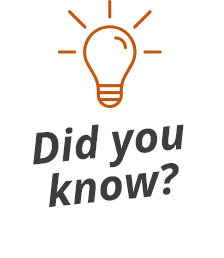Cold weather brings higher heating and energy bills. Warm shelter is in high demand. Hot, nutritious meals may be harder to come by.
The good news: There’s help for all those everyday needs and more. Below, we have compiled a list of some free support services available to you, right in your community. They can help you stay safe and healthy throughout the winter and beyond.
Heating and utilities
- If you qualify, the federal Low Income Home Energy Assistance Program (LIHEAP) can keep you warm by helping to pay your home heating bills.
- Households eligible for LIHEAP may also qualify to have their homes made more energy efficient through the Weatherization Program. Weatherization means low-cost home improvements, like sealing cracks, that could lower your utility bills.
- Energy bills just too much to manage? Here are some options that will help keep your service turned on: wa.gov/consumers/energy/energy-assistance-programs. You might also contact your local utility company to see what payment assistance options they offer.
Rent, housing, and shelter
- Use the Washington 211 website to look for rental assistance in your area. (Type “Rent Assistance” in the search bar.) If you cannot find any programs in your area, call 2-1-1 or your local housing authority for assistance. It’s also important to know your rights as a tenant.
- Some nonprofits like Salvation Army, Catholic Community Services, and Hopelink offer emergency financial assistance.
- If you or your family need a one-time cash payment to get or keep safe housing or utilities, you may be eligible for the Additional Requirements for Emergent Needs (AREN) or the Diversion Cash Assistance (DCA)
- The state’s Consolidated Emergency Assistance Program (CEAP) gives money to needy families, children, and pregnant women who are facing an emergency.
- Coordinated Entry is a state program that helps connect people experiencing or at risk of homelessness with housing and shelter agencies and resources in their community. Check out this page for a county-by-county list of agencies. You can also call 2-1-1 for local warming shelter information and help.
- The state has put together a Housing Assistance Guide with information on shelters, eviction prevention, resources for youth and young adults, and rent assistance.
Food
Washington State has programs that provide monthly funds for purchasing essential foods.
Supplemental Nutrition Assistance Program (SNAP) and Electronic Benefits Transfer (EBT): The Supplemental Nutrition Assistance Program, known as Basic Food in Washington State, provides monthly benefits to people with low incomes to buy food. Each month, SNAP benefits are added to an EBT card that you use like a debit card to purchase food at supermarkets, grocery stores, and other retailers.
To qualify for SNAP benefits, you must meet certain requirements, including income limits.
Temporary Assistance for Needy Families (TANF): The Temporary Assistance for Needy Families program provides temporary cash and medical help for needy families and pregnant women who meet the eligibility criteria. You can apply online, by phone at 877-501-2233, or at your local Community Services Office.
Diversion Cash Assistance (DCA): For families who have a short-term need. You can apply online or at your local Community Services Office.
Food Banks: Northwest Harvest and 2nd Harvest both operate and support a network of food banks and meal sites across the state. Check out their websites to find a location near you. Or use the local food bank map from the Washington State Department of Agriculture. Some food banks will even deliver to your door!
Tip: Use the pre-screening tool on the Washington Connection website to see what state assistance you or your family may be eligible for. This includes EBT, cash assistance, Apple Health (Medicaid), TANF, and other state programs.
Warm clothing
Non-profit organizations like Jewish Family Services, Salvation Army, Washington State Catholic Charities (Catholic Community Services of Western Washington, Catholic Charities of Central Washington and Catholic Charities of Eastern Washington), and First Five Years & Beyond offer warm clothing. Also check out the map on the One Warm Coat website to see which organizations near you are holding coat drives.
Staying connected
- People with low incomes can get a free cellphone plan through the federal Lifeline program.
Lastly, make sure you’re prepared for severe winter weather. Review these tips on how to stay safe and stay warm.
If you ever need support, there are people and services in your community ready to help.
Are you a CHPW member and need help with renewing your Apple Health coverage? Call CHPW’s Renewal Team at 1-866-907-1904 (TTY: 711), 8 am – 5:30 pm, Monday through Friday.


